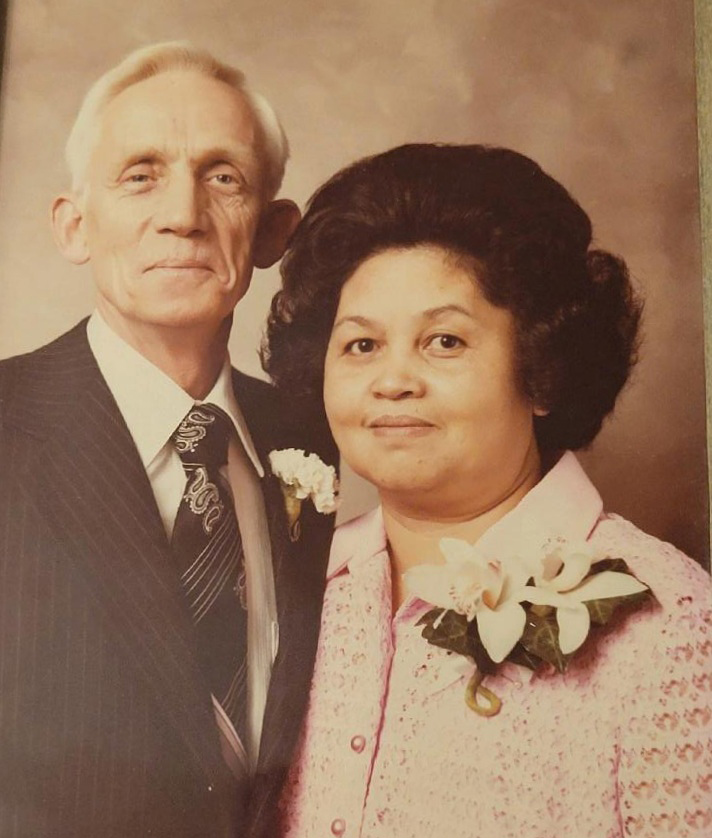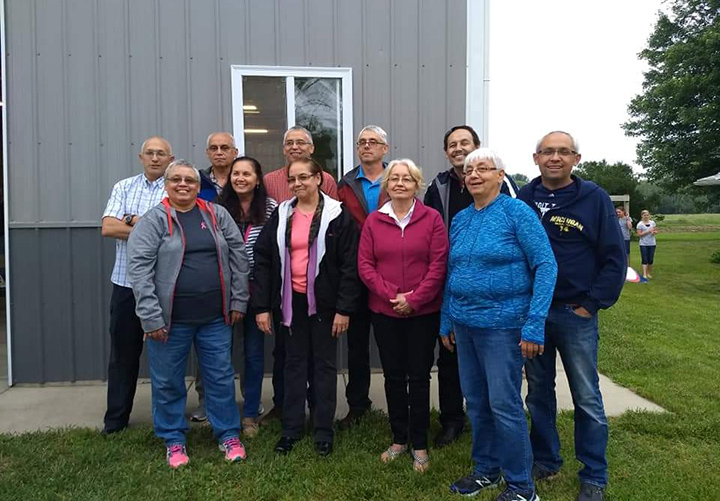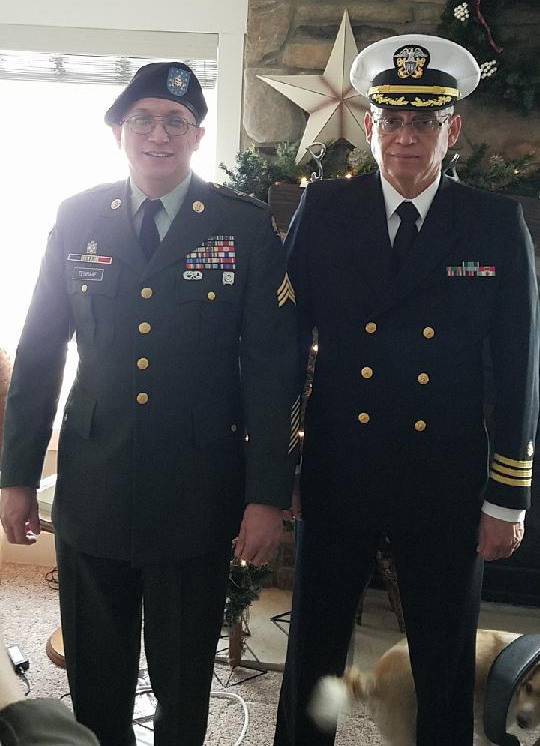
His military service began with 10 years of active duty in the U.S. Air Force, where he worked on radar and communications systems, and electronic countermeasures as an avionics technician.
Tenhaaf’s skill in repairing aircrafts proved to be valuable during his subsequent 13-year stint in the Army National Guard because M1 tanks are equipped with jet turbine engines. Tenhaaf’s military tenure includes serving as part of Operation Noble Eagle, a U.S. homeland security effort in response to the September 11 attacks in 2001.
“For me, going into the military was something I felt I had to do,” explained the father of three. “I learned discipline, and I pass that down to my kids.”
As a young man, Tenhaaf’s sense of duty was honed by stories of the experiences of his parents during wartime.
His father, Jan, fought as a lieutenant in the Royal Dutch Army and was a leader in the resistance movement , sometimes hiding British and American fliers. His undercover work was chronicled in the book Twilight Ramblings. Tenhaaf’s mother, Fredricka, spent the war in a Japanese internment camp in Indonesia. His parents met when Jan was sent to free Indonesia as part of a military contingent. The family moved to the U.S. after the war.
Today, Tenhaaf said he identifies as “Dutch Indo,” a minority group that is often described as “marginalized” in society.

"When it comes to fixing a machine, I never settle. I want to fix it the right way. Get the right parts and don’t pass the buck. Make the machine better."
John Tenhaaf
Picture of John Tenhaaf's mother and father

John Tenhaaf, spending time with his family
“I dealt with racism growing up,” he said. “I had my mother’s dark skin and black hair. I was called a lot of racist names. In the world today, I understand where a lot of people are coming from. My job is in a culturally diverse workplace. We respect each other. Family is important, whether it’s blood or not.”
In his spare time, Tenhaaf supports the USO and military suicide awareness organizations such as the Til Valhalla Project and #22ADAY movement. And he is passing along his love of “anything with an engine or wheels” to his 12-year-old son Clayton. Visiting his dad’s workplace has been a thrill for the seventh- grade student who builds Lego robots and loves STEM classes.
“I tell him robots are the future,” Tenhaaf said. “Learn everything you can about them.”
We want to hear from you
Send us your questions, thoughts and inquiries or engage in the conversation on social media.
Related Stories
Stay connected
You can stay connected with Magna News and Stories through email alerts sent to your inbox in real time.
